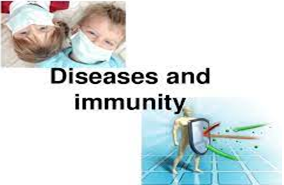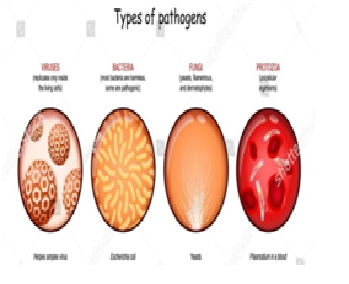

Immunity and Diseases
Immunity to a disease is achieved through the
presence of antibodies to that disease in a person's system. Antibodies are
proteins produced by the body to neutralize or destroy toxins or
disease-carrying organisms. Antibodies are disease-specific.
The disease causing germs are also known as
a) bacteria
b) virus
c) parasites
d) pathogens

Which of the
following is/are pathogen/s?
a) bacteria
b) virus
c) fungi and parasites
d) all of these
The disease which is caused by pathogens is called……..disease.
a) inherited disease
b) contagious disease
c) non-contagious disease
d) infectious disease
Explanation:Infectious diseases are disorders caused by organisms such as bacteria, viruses, fungi or parasites. Many organisms live in and on our bodies. They're normally harmless or even helpful. But under certain conditions, some organisms may cause disease. Some infectious diseases can be passed from person to person.
Ali is anemic person. His health issue is a/an
a) infectious disease
b) disease due to pathogens
c) viral attack
d) non-infectious disease
Explanation:Non-infectious diseases are not caused by pathogens and therefore cannot be spread from one person to another. Instead, non-infectious diseases are caused by factors such as genetics, malnutrition, environment and lifestyle. Examples of non-infectious diseases include cancer, Alzheimer's disease and epilepsy.
Which of the following is/are infectious disease/s?
a) Flu
b) typhoid
c) ringworm
d) all of these